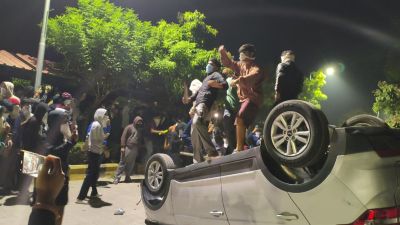No end of story, this
The Clinton-Nawaz Sharif meeting in Washington on July 4 is being welcomed in India as the harbinger of a qualitative and positive change...

The Clinton-Nawaz Sharif meeting in Washington on July 4 is being welcomed in India as the harbinger of a qualitative and positive change in the Kargil conflict. President Clinton’s insistence that Pakistan should withdraw its troops and allied mercenaries back across the Line of Control (LoC) and that the LoC should be restored is a welcome development which will contribute to a more positive interaction between India and the US.
Nawaz Sharif has formally accepted these suggestions, though reluctantly, but can he translate his commitments in the joint statement in Washington? While he may be able to withdraw regular Pakistani troops back to his side of the LoC, can he ensure that the mercenary groups and terrorists will withdraw? Would the Pakistani government claim that it has no control over these “freedom fighters” mean their withdrawal is not its responsibility?
Second, respecting the LoC is a conceptual stipulation. Would Pakistan move back beyond the LoC as accepted over the last 27 years, orwould it demand a discussion on the LoC’s actual location, having questioned its validity?Third, can Sharif manage the backlash in Pakistan against his commitment to President Clinton? The challenges for India beyond Kargil are embedded in the basic orientation of Pakistani policies which are not likely to change.
India has not taken sufficient note of Sharif’s most significant statement on Kargil. He told troops in PoK that if India does not resolve the Kashmir problem in a reasonable way (in Pakistan’s view), there will be many more Kargils. There can be no clearer declaration of intent: continued military violence across the LoC and inside Kashmir in the expectation that India will surrender its interests under the pressure of large-scale military intrusions, the instigation of terrorist acts, and the creation of international pressure through the prospect of nuclear and missile conflict.
These intentions have found even more specific expression in Chief of Army Staff Pervez Musharraf’s declarationafter General Zinni’s visit that the question of a unilateral withdrawal from the LoC does not arise.
This is acknowledgement of the presence of Pakistani troops on Indian soil and his control over their movement. A PTI report from Islamabad on June 27 said Tahir Mehmood, a brigade commander operating in the Kargil sector, told the Nawa-e-Waqt newspaper that the Srinagar-Leh Highway in Drass-Kargil would be within striking range at five points in the very near future. He said the aim is to isolate Ladakh and destroy India’s strategic control in the Siachen area. General Hamid Gul, former ISI chief, said in June that in two months the Pakistan army should control the Siachen area.
Despite Islamabad’s short-term international isolation, there is no indication that it will easily relent. Compounding this is its linking Kargil to India agreeing to a solution to Kashmir in a specific timeframe and hints about a willingness to use nuclear weapons. India needs not just to push back Pakistani troopsacross the LoC in Kargil-Drass-Batalik, but to evolve a political-military policy all along the LoC to preclude any violent Pakistani military initiative in future.
This must be achieved in a stable atmosphere in Kashmir in the context of evolving international reactions on which there can be no certainty, and in the background of post-nuclear-weaponisation strategic equations. Above all our strategies have to be based on a deep national consensus on the long-term Pakistani threat, which we hesitate to acknowledge.
The first priority is to continue military operations to push back Pakistani intruders. We should try to complete this by the first week of September. The imperative is to maintain decisive pressure so that Pakistani troops do not consolidate, regroup and expand the conflict or build up logistical support for continuing operations. If we do not complete operations by September, weather conditions will give their military establishment breathing space. The time limit is imperative both in termsof domestic political and international considerations.
The UN General Assembly session starts in the second half of September and goes on till end-December. Pakistan will make every effort to persuade the Security Council to act under Chapter 7 of the UN Charter to intervene. We must anticipate its intensifying and expanding of the area of conflict in July and August. The only reason it could hesitate is further isolation. Yet the slightest possible provocation will give it a handle to expand the conflict. Our operations should be calibrated to meet this eventuality. We should not foreclose military option.
One major point in our favour is the incremental international acknowledgement, led by the US, that Pakistan is directly involved in this conflict. General Zinni’s coming to Pakistan, President Clinton’s interaction with Nawaz Sharif and the State Department spokesman confirming that regular troops from the 10th Corps of the Pakistan army are involved endorse the legitimacy and necessity of ourmilitary response.
The G-8 statement, while not supporting India’s basic political stance on Kashmir, has gone far to affix responsibility for this crisis on Pakistan and ask it to withdraw. However, if the military conflict becomes prolonged and if Pakistan practices nuclear brinkmanship, which it is likely to, the international community will revert to a neutral, didactic stand to preempt a nuclear confrontation. The Security Council’s jurisdiction may be activated and no permanent member may veto action in such a situation.
Assuming that we can achieve our objective by September, we must start structuring long-term responses and be prepared to consolidate our military position along the LoC from Jammu to Siachen, locating all-weather posts. Second, we will have to deploy additional forces on a more permanent basis for at least a decade in Kashmir. Third, we should undertake a methodical, high-level diplomatic offensive at the UN and all important capitals.
Fourth, we should reaffirm our doctrine ofno first use of nuclear weapons and long-range missiles but stress that such provocation from Pakistan would invite a decisive response. We must underline the importance of major powers persuading Pakistan to desist from nuclear or missile adventurism. The diplomatic effort should be backed by a publicity campaign characterised by maximum transparency on Kashmir. Our publicity should be responsive to anticipated questions from the international community. Above all, our response should be based on a united national stand, which should be perceived as a profound long-term and unshakable national commitment.



- 01
- 02
- 03
- 04
- 05




























